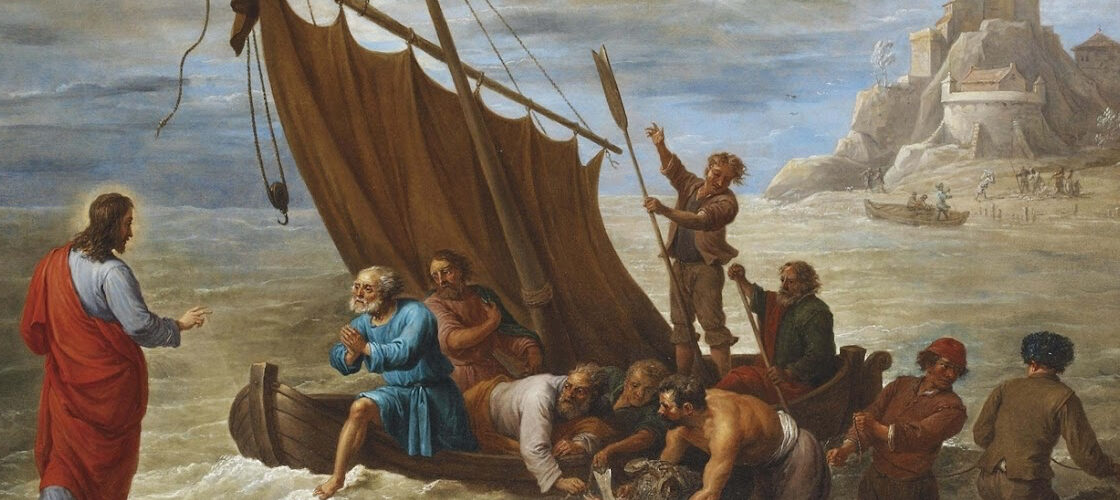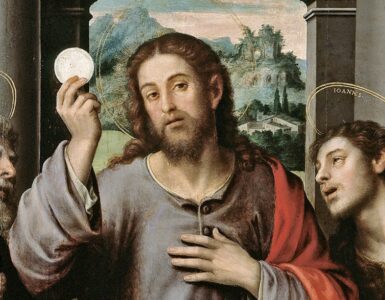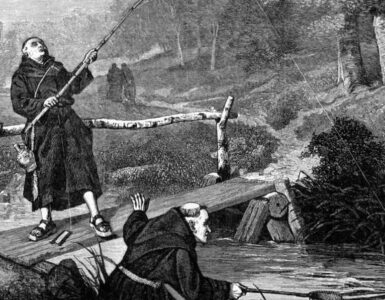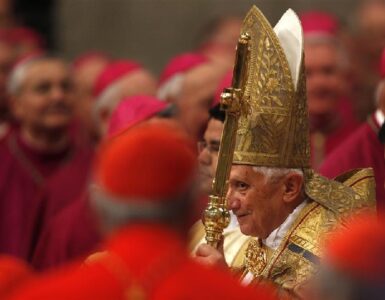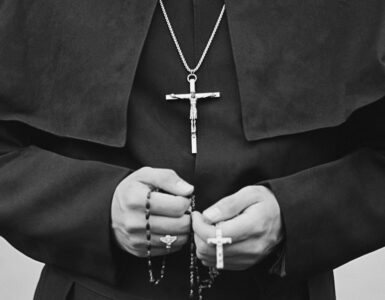India was part of the British Empire for many years, and it was customary for young men in both the British royal family, and royalty from India itself, to serve in the army stationed there. There was one Indian prince, or rajah, who was rather conceited and always demanding special privileges for himself: riding instead of walking, excusing himself from hard work and common labor, and so forth. Though his royal position entitled the Indian rajah to a certain amount of deference, none of the other soldiers liked or respected him. One of the other soldiers stationed in that unit was a British prince, the grandson of Queen Victoria. He could have demanded special privileges, but he didn’t; he wanted to work his way up through the ranks. Unlike the Indian rajah, the British prince was very popular with his fellow soldiers; they truly admired him, and would have done anything for him. When this was pointed out to the rajah, he finally realized that true authority depends not on rank, but on respect for others (Msgr. Arthur Tonne, Stories for Sermons, Vol. 11, #41). Because of His perfect obedience to the will of His Heavenly Father, Jesus has been given full authority in Heaven and on earth—which means He has earned the right to command every single one of us. However, He doesn’t lord it over us or make us feel bad about ourselves—and this is a lesson for us. At different times, we all have some degree of influence or authority over other people—and if we want to follow Jesus, we must exercise it in a spirit of humility, service, and sacrifice.
True authority comes from God—but because He normally chooses to work through His servants on earth, we are invited to play an important role in His plan of salvation. This divine appointment or commissioning supersedes every human source of authority and power. In the Acts of the Apostles (5:27-32, 40-41), the apostles were hauled before the Jewish ruling body known as the Sanhedrin, which had earlier strictly ordered them to stop preaching about Jesus. The apostles, of course, had disobeyed this illegitimate command, choosing instead to obey the higher authority represented by God Himself. The disciples of Jesus were simple, uneducated men, unlike the religious leaders; they were guilty of violating the strict orders they had been given, and even dared to speak of Jesus in the presence of the Sanhedrin itself. Nothing would silence them, because God Himself had given them permission, and the duty, to proclaim the Gospel. The apostles had to pay a price, but were able to rejoice and bear the ill-treatment they suffered through the grace of God.
The vision of Heaven given in the Book of Revelation (5:11-14) shows all creation worshipping God the Father and the Lamb—the Lamb, of course, being Jesus Christ. Jesus was given authority in Heaven and earth because He was obedient in serving God and His people, and because He offered Himself as the sacrificial lamb. Leadership and service are meant to hand-in-hand. As we see in the Gospel of John (21:1-19), Our Lord gave authority to Peter—but with certain conditions and understandings. The story is rich in symbolism, and the symbolic elements help bring out the nature of the authority Peter received. Peter, the “fisher of men and women,” was out fishing on the Sea of Galilee. Just as without Christ we can do nothing, Peter and the others caught nothing on their own. With the Lord’s help, however, they made a miraculous catch; in the same way, with Christ’s help, we can do great things. In spite of the sizable catch, the net was not torn; this suggests that, within the Church, there is room for many people, cultures, backgrounds, viewpoints, and experiences. Jesus cooked some of the fish and served breakfast to His apostles; His followers are in turn called to serve others. Peter had denied knowing Jesus on Good Friday while standing beside a charcoal fire; now, alongside a charcoal fire, he was given the chance to redeem himself. Peter had three times denied Jesus; three times the Lord now asked him to express his love. Each time the apostle did so, the Lord said, “Feed My sheep”—in other words, as the leader of the apostles and head of Our Lord’s Church, he was to serve and care for others. Jesus also told Peter that this exercise of service and authority would one day lead to his death—and indeed, Peter was himself crucified in Rome some thirty years later.
During the Revolutionary War, a corporal in the American Continental Army ordered some soldiers to move aside a tree that had fallen across a road, but they were struggling to do so. An officer who observed this suggested the men might succeed if the corporal helped them, but he stood on his rank and protested that such menial work was beneath him. Thereupon General George Washington dismounted, handed the reins of his horse to the corporal, and then helped the struggling soldiers successfully move away the fallen tree. This sort of servant leadership helped Washington become one of the greatest and most-loved men in history—and an example for us.
Whatever authority we may have—whether as a parent, business owner, supervisor, teacher, pastor, or anything else—isn’t primarily for our own benefit, but for the well-being of those we lead and serve. This is especially true in regard to the spiritual authority we possess as Christians—for as children of God and members of His royal family, we all have the power, and ability, and duty to bear witness to Jesus in our words, prayers, and example. By our witness, we mustn’t act as if we’re superior to non-Catholics, non-Christians, and non-believers; rather, we must humbly show that we care for people, including those who are different from us, just as our Lord and Master does.
Jesus is Lord not because of His power, but because of His love; He is great not because of His identity, but because of His humility. If we wish to share in His glory, we must first share in His willingness to serve and to give of Himself for others.


